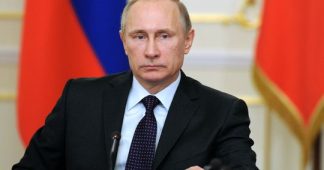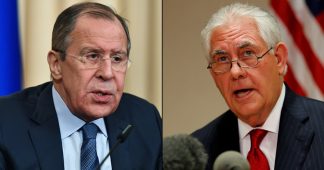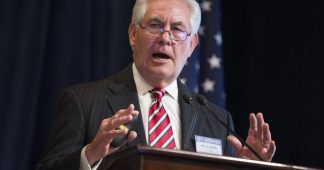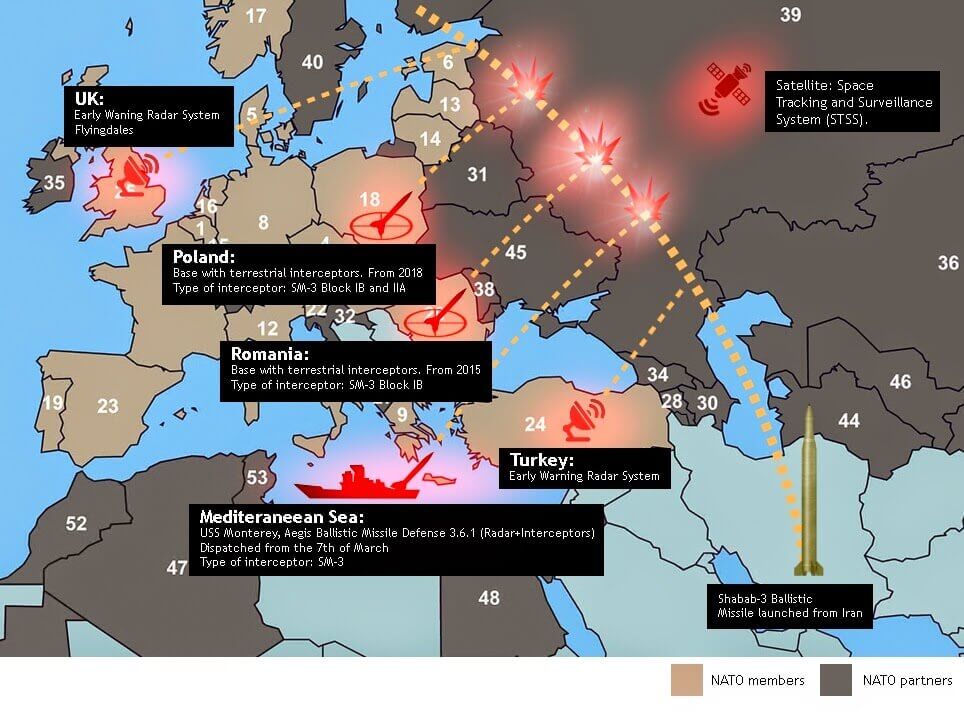By Bryan MacDonald
18 Apr, 2017
Ignorance is bliss. Don’t take my word for it. Just observe really stupid people. Or read Vanity Fair’s Russia coverage. Which is much the same thing. So far this year the magazine has plumbed new depths of foolish, doltish and half-baked analysis.
It started in January when it offered us “The Secret Source of Putin’s Evil,” which was supposedly Fyodor Dostoyevsky’s novel The Brothers Karamazov. The drivel continued with fixations on the “Trump-Russia nightmare” and the “Trump-Russia mess“. The focus then switched to “Why Russia Loves Trump” before the same writer came back a few weeks later with “Why Even Russia Is Turning on Trump” when the wind obviously hit his posterior from a different direction.
Now, he’s back, and he’s going all feudal on Russian rumps. Because Peter Savodnik wants you to know how democracy could have flowered from Kaliningrad to Vladivostok if only locals had heeded Clinton, Yeltsin, and Sachs. Who we are told had “noble intentions.” However, the problem was “it was probably too much to ask a basically medieval country to become modern in a decade.” So “instead, Russia reverted to its primal self, to Vladimir Putin.”
Contemporary times
Just read those last two sentences again for a second. And then try to comprehend how anyone could believe how 1991’s Russia was an antediluvian civilization. We are talking about the successor state of the Soviet Union, which not only won the space race but gave us things like Tetris and Radial Keratotomy. A useful cure for myopia from which a lot of American journalists would benefit.
Russia has also provided Europe with much of its high culture. Including the novels of Leo Tolstoy and Mikhail Bulgakov, the music of Pyotr Tchaikovsky and Igor Stravinsky and the theater of Anton Chekhov and Alexander Ostrovsky. Furthermore, 94 percent of today’s adults hold at least an upper secondary qualification, against a G20 average of 60 percent. Russia also boasts the largest percentage of citizens in the OECD who have attained a third level education (53 percent).
Thus, only a complete dingbat would associate the country with the Middle Ages. A time best remembered for war, famine, plague and pestilence. But, sadly, Savodnik’s nocturnal friends are clanging, crashing and pounding with wild abandon.
He insists Rex Tillerson shouldn’t have gone to Moscow last week to speak to Putin and Sergey Lavrov because Russia “is a country that exists outside the Western paradigm, and, so long as that’s the case, we ought to guard against it.” Because it “threaten(s) elections, energy flows, or the prosecution of wars against terrorists“. Incidentally, Vanity Fair’s publisher, Conde Nast, last month launched Vogue Arabia, in a region much farther removed from the West than Russia.
But his point needs to be discussed. Because Savodnik, and his fellow travelers, rarely properly ask why Russia didn’t fully integrate into the West in the 1990’s. After all, Putin himself was still clinging to the idea until at least the mid-2000’s, and Russians were genuinely fascinated by Western ideals for a considerable length of time. Yet, American analysts, almost exclusively, pin the blame entirely on Moscow. Which is grossly unfair. And for proof of this, just listen to Jeffrey Sachs himself.
The horse’s mouth
After I tweeted about the Vanity Fair piece and shared another observation from Mark Ames, Sachs replied to give his version of events. He insisted how “Bush, Clinton failed badly in (the) US opportunity and responsibility to support Russia’s economic reforms. (The) Expansion of NATO made things worse.” Something which certainly runs contrary to accepted mainstream wisdom.
It's 2017 and Vanity Fair says Russians are hopeless primitives "despite noble intentions of Boris Yeltsin, Bill Clinton & Jeffrey Sachs" pic.twitter.com/IwZODBDcjf
— Mark Ames (@MarkAmesExiled) April 16, 2017
Bush, Clinton failed badly in US opportunity and responsibility to support Russia's economic reforms. Expansion of NATO made things worse.
— Jeffrey D. Sachs (@JeffDSachs) April 16, 2017
Sounding like a man with something to get off his chest, Sachs didn’t stop there. “The irresponsibility of the USG (United States Government) in the 1990s is simply not understood. The USG failed at a unique historic moment, and I warned so then,” he continued. “My reform efforts lasted for two years, 12/91 (December 1991) to 12/93 (December 1993). I quit at the idiocy of US policy & growing corruption. USG failed miserably.”
Ames followed up by asking “Russia was in catastrophic decline from 12/91 through 12/93 (and several years beyond)-don’t you accept some responsibility for this?” Sachs answered: “The Soviet Union had collapsed. I was asked for help by the new Russian Government. I gave advice that the US rejected, wrongly.”
So there you have it. Vanity Fair labels Russians as “medieval” for failing to cooperate with Sachs’ “noble intentions, ” and the man himself fingers the Bush and Clinton administrations in Washington. But these comments will probably never see the light of day in an American news outlet because they challenge the narrative where Russian is always at fault.
The fact is that in the 1990’s all the former Soviet States needed something equivalent to the Marshall Plan which guided much of Europe’s transition from dictatorship, whether by royalty or despots, to democracy. Instead, the West decided to dance on the USSR’s grave and watched as most of these new states descended into oligarchy, banditry, and gross inequality.
When Putin came along, he inherited a country on the verge of collapse. A nation in the midst of a demographic disaster, with a broken economy, a civil war raging in the south and widespread discontent at the effects of the “dermokratia” (literally “shitocracy”) experiment. Indeed, to this day, economic liberals are often dismissed as “liberasts” (a pejorative term) in Moscow.
Rather than smearing people as “primitive,” American journalists would be well advised to engage in some honest debate about why the West “lost” Russia. Then again, as William Makepeace Thackeray wrote, “Vanity Fair is a very vain, wicked, foolish place, full of all sorts of humbugs and falsenesses and pretensions.” Much like Western coverage of this country in general.











